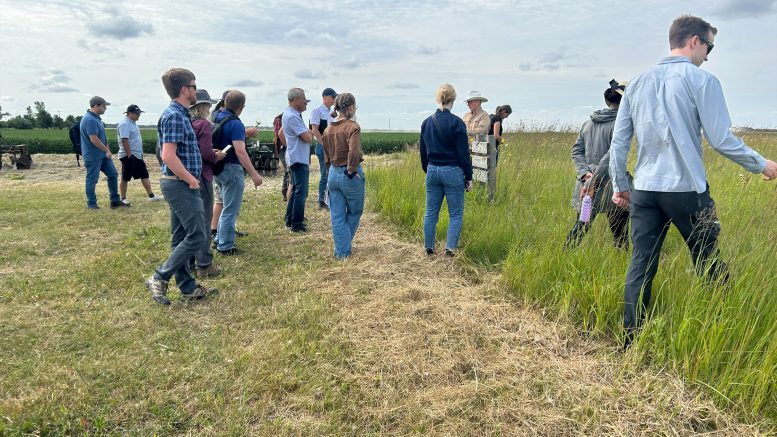The U of M has received a $7.6 million grant to embark on a transformative journey in sustainable agriculture.
Funded by the Natural Sciences and Engineering Research Council (NSERC) and Social Sciences and Humanities Research Council (SSHRC) sustainable agriculture initiative, this grant will support four years of research into the Canadian agriculture sector. The funding will support research to develop strategies to enhance economic competitiveness, ensure food security and drive environmental innovation in Canada’s agriculture sector.
U of M researcher and project lead Martin Entz, Jarislowsky Chair in Natural Systems Agriculture for Climate Solutions, and his team will use the grant to study net-zero farming systems. The NSERC and SSHRC have recognized the potential of this research and awarded the grant to pave the way for a hopeful and optimistic future in sustainable agriculture.
The project will unite stakeholders from agriculture, environmental stewardship, First Nations communities and academia. Their collective efforts will focus on achieving sustainable agriculture production targets in Canada.
Each partner has outlined potential net-zero pathways for agricultural sustainability, which the team will study. Researchers will use advanced farm modeling tools to track progress and explore various net-zero scenarios. These practices will help address gaps and support the goal of reducing emissions.
Entz said to UM Today that, “this project would not be possible without the spectrum of our research collaborators and partner organizations, all of whom are approaching this challenge with a commitment to developing practices that not only reduce impact but also build resilience into our food production systems.”
Entz continued, “working together, partners, trainees, farmers and researchers will advance profitable, net-zero agriculture in a participatory, dynamic and democratic manner, yielding crucial information to policy-makers and business leaders and preparing Canada for the uncertainty of climate change.”
Entz has advocated for sustainable agriculture for over three decades. He has focused on ecologically integrated farming systems through Canada’s longest-running organic-conventional farming systems comparison study, the Glenlea long-term rotation study. His work spans international borders and improves both productivity and environmental health.
Entz has collaborated on projects that ensure food security and ecological restoration in East Africa, Asia and Central America and helps farmers adopt sustainable mechanical practices.
Meagan King, a lead researcher of the project said the project is about transforming agriculture in Canada. The team is “focused specifically on the prairies and transforming it to a more sustainable place.” In addition, the project combines sustainability, soil science and plant science and will involve Indigenous engagement and engagements with settler farmers.
The project is also looking at changes farmers could implement to make the Canadian agriculture sector more sustainable. Some changes that are included are perennial crops, inter-cropping, cover cropping and grazing livestock.
King said conducting surveys across Saskatchewan and Manitoba by going to farms that are already doing the required changes and taking samples of the soil will also be incorporated as part of this research project.
Funds for the project will be divided over four years and each portion will go into different activities, such as training the next generation of scientist and researchers, policy makers, farmers and students that will also take part in the project.
King said she hopes the research project can help advance and support farmers to make certain decisions about changing some of their practices.
She concluded by saying that the team of researchers have a privilege and a duty to do this work and to also share it with the rest of the world.
Mario Pinto, the U of M’s vice-president (research and international), shared his thoughts about the project to UM Today. He said, “this visionary project allows researchers to work toward common goals that will bring their expertise together to reimagine net-zero farming systems for climate change adaptation.” Pinto stated, “by collaborating with producers and academic experts, different perspectives can help find solutions for sustainable agriculture in the future. Partnerships funded by NSERC alliance grants provide excellent opportunities for large scale sustainable change in Canada.





